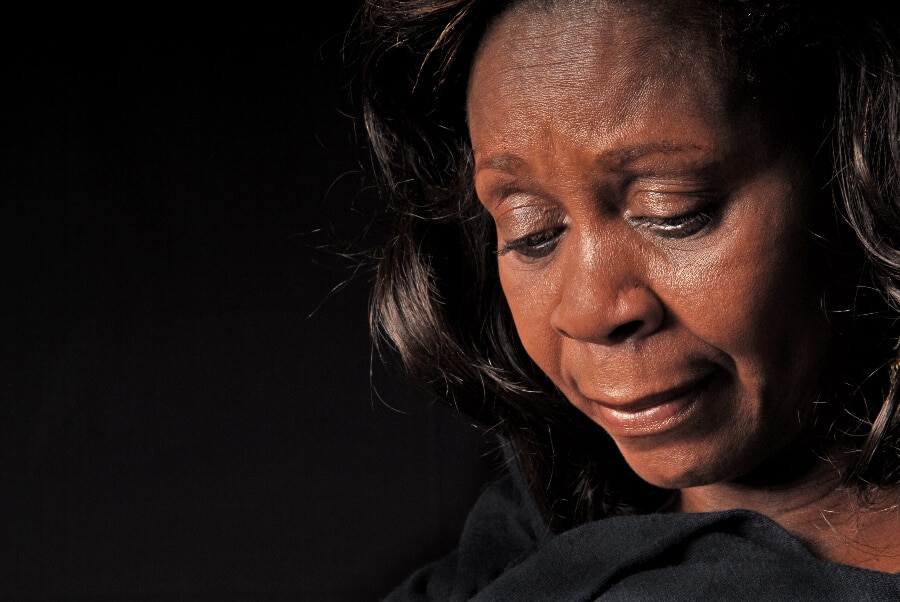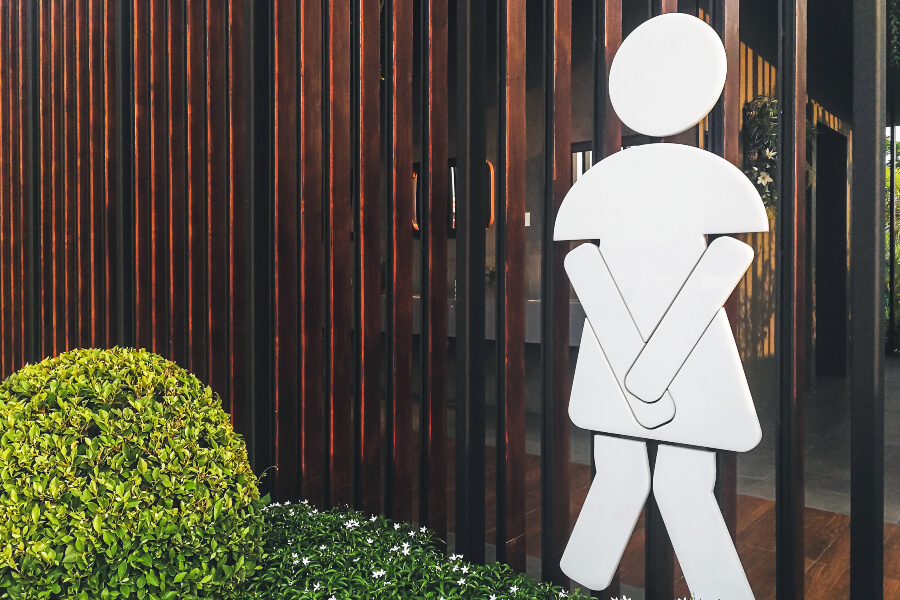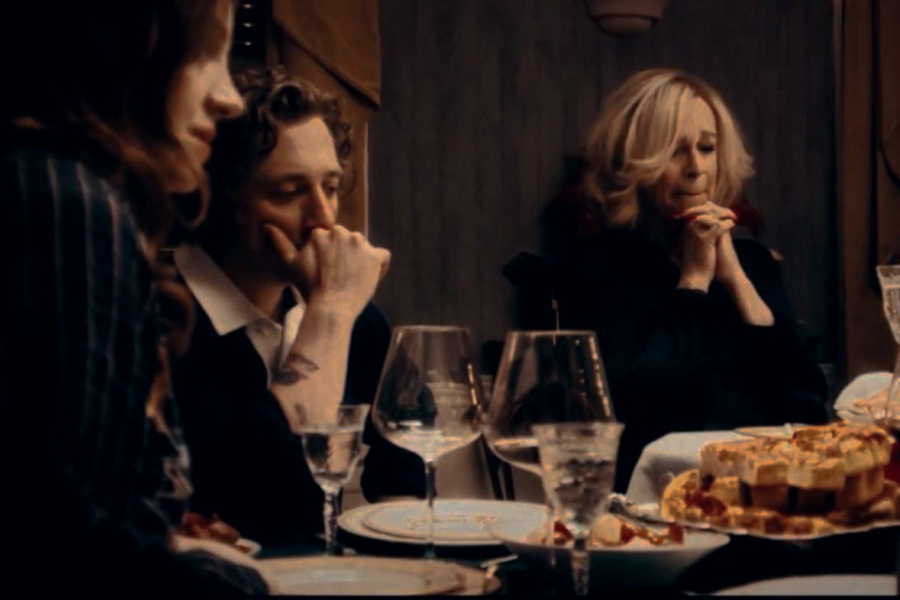One Sunday afternoon in late June more than 10 years ago, my husband Jim went up to our bedroom for an afternoon nap and didn’t wake up. Over the next several weeks, I learned many things: How grief is a physical sensation that creates gravity and makes even the air feel heavy; that some people are wonderful in the face of death (and not necessarily the ones you expect); that some people aren’t (again, not always the ones you’d think); that gradually the heavy air around you begins to thin, and you can start to breathe again.
As I adjusted to my new normal and got on with my life and my job and navigating my kids’ needs, I learned something else: As a suddenly-single mom, I had so much company. But I was a subset of a subset—a 52-year-old widow among so many divorcees—which sometimes made my path harder, and sometimes more manageable. And thus, more lessons.
Trash Talking is Taboo
When you’re divorced, you can trash your ex—but you really can’t trash, or even gently criticize, someone who’s dead, unless you want to feel disloyal, look like a complete heel, and make people squirm. We’d been happily married 24 years when Jim died, but because we were, you know, human, it wasn’t perfect. But now it seemed….unseemly to mention that.
By virtue of his death, they’d wrapped our marriage up in shiny paper with a bow, and they didn’t want to see it any other way.
A year or so after he died, I was at a block party, sitting at a table with a couple of neighbors, both divorced, one recently. They were reeling off their ex-husband’s failings in a laugh-filled competition of who-had-it-worse. We were all giggling at the blind narcissism of some middle-aged guys. “And then he wore the ugliest possible shirt to my work event!” one of them said.
We howled, and I said, “Oh my god, Jim used to do that too! I made up a rule: No T-shirts with words on them. It made me insane.”
Sudden silence. Whoops, that brought that vibe right down. “You guys were so happy,” one of them tentatively said. “I mean, he was such a special guy. He was taken so young….”
“Yeah, he was special,” I stammered. I suddenly felt like I’d spit on his grave or something. By virtue of his death, they’d wrapped our marriage up in shiny paper with a bow, and they didn’t want to see it any other way.
Read More: How to Lose a Husband: Saying Goodbye to Your Other Half
You Make People Uncomfortable
Divorced or widowed, people will feel uncomfortable with your situation. For awhile, many people in my life, besides family and close friends, tried to swerve away from the subject of Jim, either out of their own discomfort and embarrassment or an effort to spare me. As if mentioning him at all would open up a wound. I know this happens to divorcees, too, especially (I suspect) when they were the ones who were left.
For awhile, many people in my life, besides family and close friends, tried to swerve away from the subject of Jim.
Some shied away as if I had typhoid. I remember my first solo Parent’s Night at the high school a few months after Jim died, when people had avoided my eyes in the hallway; one acquaintance practically ran back up the staircase to avoid me. As everyone was leaving afterward, a mom I barely knew fought the crowds to ask me how I was doing; then she told me her husband of decades had recently split and moved in with a younger neighbor.
“People here tend to act like you’re poison, don’t they,” she said, waving at the other parents. “It’s like they think we’re contagious.” Well, I said, maybe it’s hard to know what to say. “What’s so hard about it?” she said. “You say, ‘Sorry, that sucks.’” Ok, good point.
You’re the Only One for the Kids
Having kids makes it harder and easier. After I went back to work, a recently divorced colleague said, “How are you getting up every day? When my husband left, I just lay in bed for weeks and cried. I got up and went to work, but then I went immediately home and got back in bed and cried some more.” She didn’t have kids. For me, lying in bed with the covers pulled up over my head wasn’t an option. The kids needed to be fed, the teacher needed to be called, the requests had to be negotiated (“No, you can’t get a tattoo. Yes, Molly can sleep over”). Not having to negotiate with an ex-husband as well sometimes did feel like a relief. But other times it would have been nice to have another opinion.
In widowhood, it’s just you against the kids, and just you who has to show up for everything.
Divorced mom or widowed mom, we’re all single parents. But in divorces, there’s often still another parent in the picture. Though for these moms, as in so many things, much of the parenting work—especially being the memory-brain for the details—still falls on them. In widowhood, it’s just you against the kids, and just you who has to show up for everything. There’s no sharing the school events; there’s no “You take Tuesday night and I’ll take Wednesday” negotiation between two working parents.
Dating is Extra Weird for Awhile
Dating is weird for awhile, which is true for all newly single parents but with different baggage and different expectations. On the first date I went on, the guy cheerily said he thought it would be better to be in a relationship with a widow “because widows aren’t angry and disillusioned about love the way women are when they’ve been burned by divorce.” I was disconcerted, to say the least. Who would have thought that having a dead husband would be a romantic advantage?
I was disconcerted, to say the least. Who would have thought that having a dead husband would be a romantic advantage?
One plus was that I didn’t have to deal with an ex’s snarky comments about the new guy, or having the kids gossip about “how dorky he is” with their dad. A big minus: When I did get involved with someone, staying overnight at his place required my very-helpful siblings’ willingness to stay at my house. It wasn’t a matter of waiting until “his night with the kids.”
Your Kids May Make Him a Saint
Your absent husband may become saintly in your kids’ eyes. It was another thing I had in common with many divorced moms, and this also complicated dating. For a widow, the canonization of the absent dad is wrenching; my younger daughter in particular was very invested in the idea that her father was my soul mate (a concept that I don’t really buy into). So she thought it was very sad that I had to “settle” for anyone else—and was more than a little pissed that I was willing to do that.
During my relationship with my first post-widowhood boyfriend, she would ask me, “You don’t like him more than daddy, do you? I mean, he’s not nearly as cool as daddy was.” I didn’t know how to answer because there were a few things about him that I did like more than Jim.
Surviving Widowhood: Getting Past the Sad Faces
Talking about him gets easier—for you and the people around you. I can’t speak for divorcees, but as a widow, at some point I made a decision to talk about Jim openly, matter-of-factly—to bring him up, say, when people were chatting about their relationships. I didn’t want to be left out of that bonding women do when they’re dishing about their home lives and loves; I didn’t want to erase all those years of marriage. Or if I was at someone’s house, I wanted to be able to say, “Oh cool, you collect World War I stuff—my husband had a World War II collection,” without getting that slight wince or a sad face.
I didn’t want to be left out of that bonding women do when they’re dishing about their home lives and loves; I didn’t want to erase all those years of marriage.
This was uncomfortable for me at first because I felt like by talking about him, I was inviting sympathy. But my goal was to get past those weird feelings and nervously blinking eyes, so I made myself do it, though I know some people found it jarring. Or friends would start to say, “Oh, remember when Jim…..” and then stop themselves and flinch a bit. One friend in particular who knew Jim well did this a lot, the stop-and-flinch thing, and I finally said to her, “It’s fine to talk about him—in fact, I like those everyday mentions, and hearing what you remember. I mean, it’s bittersweet, but there’s a lot of sweet in there.”
Now, these seven years later, I talk about him quite easily and naturally, without giving it a thought. And from the people in my life—my family, friends old and new, and current coworkers who have only known me as a single mom—there’s no wince, no flinch, no sad face. Just a shared conversation about someone who was there for me, for so many years.
Read More: Lying to an Ex-Husband on His Death Bed
For more information and support:
We found this spunky and truly honest blog about widowhood called Wife After Death. (God, do we love a good pun.)
A version of this story was originally published in November 2017.





















0 Comments